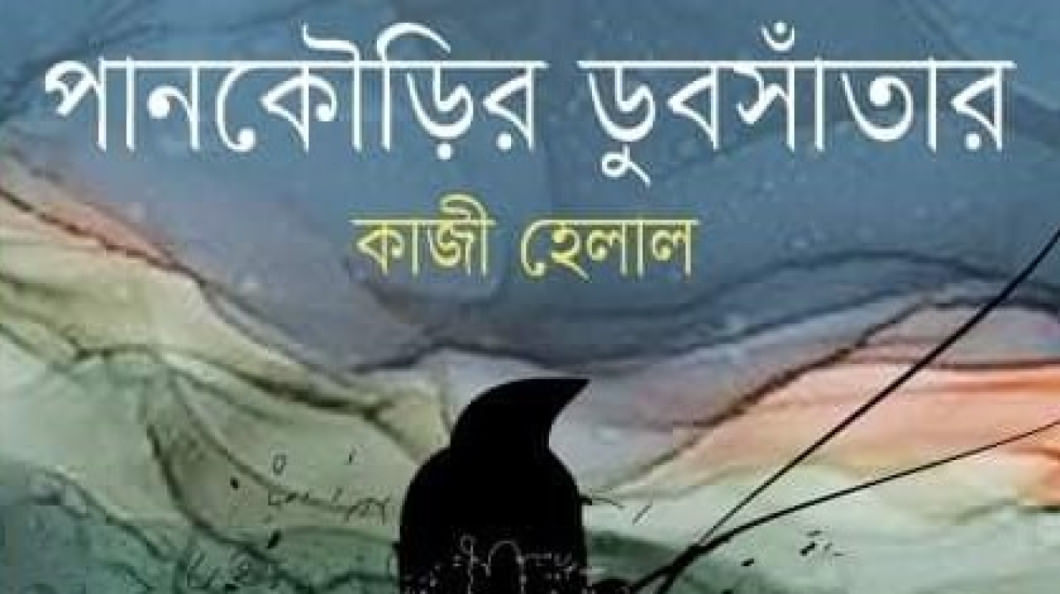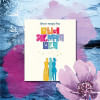A deep dive into a poet’s mind

Writer Kazi Helal's pen leaked poetry from the young age of 14. His words would compile poems of love, his current moods and experiences to the best of his abilities. But like many other writers' creations, his words too went under the knife.
For Helal, the chopped-off-words acted as discouragement, since for him, it was those very words that bore his signature, an essence of his identity.
When he moved to Canada in the '90s, the beat of his poetry had died down to keep up with the hymn of survival. He had lost touch almost completely with his craft, so much so that he wondered if he even had it in him.
But even so, for the sake of writing, he wrote.
When the pandemic hit, Helal batted off the dust of his desk and sat down to write. Sitting from a foreign land, the ink flowed again.
The book, Pankourir Doobshatar (GronthoShopto, 2022), has been compiled and almost reads eerily like a journal. A particularly lovely touch was the date and place stamp under (almost) every poem, that gives the reader a glimpse into the frame of his mind.
The introductory poems–"Dui Shobder Mahakabbo" and "Janani Upakhyan"—act as symbols of the writers' longing for his motherland and the waves of emotion he feels about the country's independence. In the former, he describes the weight of "Joy Bangla'' in the life of every Bangali–how it had the strength to unite and defy powers that were larger than us.
In "Janani Upakhyan", the writer describes, with beautiful imagery, the ties of the Bangladeshi people with their land—how it inspired the sacrifice of life for the sake of freedom during the Liberation War, and how, even now, like a candle that never burns out, it awakens the spirit of Bangalis to stand out from the rubble and proudly hoist their flag.
In most of his works, however, readers would find reflections of his greatest confrontations in life. Echoes of this can be found in "Ishorer notun proggapon", where he writes from the perspective of God's reflection on his creations. In "Mukhomukhi Mukhosh", the writer plays out existentialism through the use of masks. He writes from the roles of politicians, artists, poets, farmers, teachers, and students, and wonders if children from their cradle are made to wear masks. And do we, then, as grown individuals, end up spending our lives lacking an understanding of ourselves?
It isn't until we come across "Bornobader Bishbrikhho" that we understand how conscious the writer is of contemporary issues and how much the geopolitical tensions of the West have stirred him. He pays tribute to the late George Floyd, who was the victim of police brutality, immediately after his death, sitting from a corner of Minneapolis on May 26. In "Monikornikar Torbari", "Shesh Manushtir Golpo", "Mangal Pandey, Shadhinatar Ogronayok" , we find traces of history and the writer's prolific penning of his sociological past. We revisit the past and the identities of the heroes that emancipated us, or at least paved the way for rebellion against the British occupation and inspired the fight for our sovereignty.
Kazi Helal is masterful in his word play, giving us the most complicated truths of life and his own reflections, in the most uncomplicated manner. He writes in a way that calls out to his readers to take a dive into his world, as he holds their hand through the journey. Maybe, in essence, that is the deepdive he's asking us to take–to find ourselves in his work.
Nazifa Raidah is a journalist and sub editor at The Daily Star

 For all latest news, follow The Daily Star's Google News channel.
For all latest news, follow The Daily Star's Google News channel. 




Comments